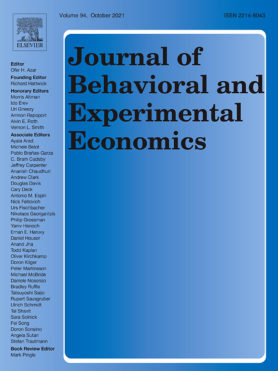Journal of Behavioral and Experimental Economics Volume 95
Non-filing, the failure to submit a tax declaration, is a widespread phenomenon in sub-Saharan Africa and produces detrimental fiscal effects, from impaired revenue mobilisation to inequality.
Non-filing has been largely unexplored in the public finance literature, which focuses mostly on active filers. This paper sheds light on the determinants of non-filing, building on neoclassical and behavioural theories, and adds to the methodological discussion on how to measure tax compliance.
Focusing on Eswatini, I combine survey data from one thousand entrepreneurs with their tax returns over 2013–2018. I show that economic deterrence, compliance costs and moral factors, such as intrinsic motivation and peer pressure, correlates with filing.
I also study how results change when using a self-reported measure of compliance. In terms of policy, results show that the tax authority could improve filing rates by balancing a deterrent and a service-oriented approach, and also by triggering the role of social norms.
